Andrey Minakov: 'At school we discussed how cool Kliment Kolesnikov was'
The best player of the Sintez water polo club from Kazan about the beginning of his sports career and preparation for the Russian championship
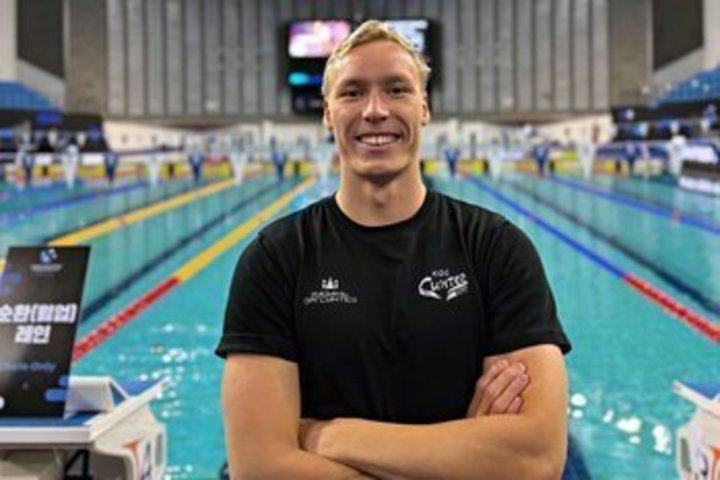
Andrey Minakov is currently the most decorated swimmer in the Tatarstan national team and the best athlete in the Sintez water polo club. He has won two silver medals and a bronze at the World Championships, plus three medals at the European Championships in classical swimming. There are also three gold and four medals at the World championships in short course — all these are Minakov's assets on the threshold of his 23rd birthday. In an interview with Realnoe Vremya, the swimmer explained how he prepared for the Russian Championship.
“From the very beginning, Kapralov marked a high discipline for the students of our group”
Andrey, how did it happen that you were born in Finland?
My parents often used to visit Finland, for example, my older sister studied there, and at the time when my mother was pregnant with me, they were on vacation in those places. We were about to return to Petersburg, but then I burst into this world a little earlier than scheduled, and my parents had to stay late.
Kapralov is a man with a name in swimming, a participant in the Olympics, a winner of the world and European championships. What kind of coach is he?
Mr Kapralov is a man who instilled in me an understanding of how swimming can become a professional sport from a hobby, what sacrifices must be made in order to achieve success in it, and in what ways to limit myself. We ran a lot, building functional training, swam a lot, both for equipment and developing the volume of training sessions. From the very beginning of classes, Kapralov outlined a high level of discipline for the students of our group, both athletic and academic, since once every half a month he checked our diaries and suspended us from classes in case of poor grades. And that was already a punishment, because we enjoyed studying with him.
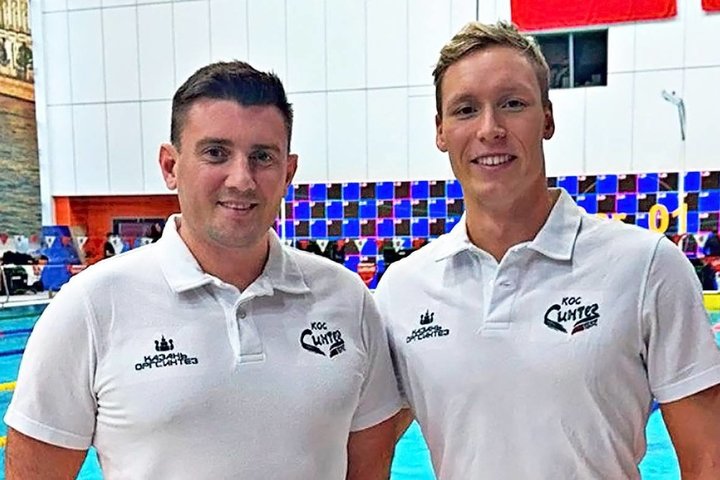
Is there anyone else famous in the world of swimming from your training group?
No, I didn't really follow anyone in the groups, I swam according to my schedules, not paying attention to anyone and not competing with anyone. But this does not mean that he was head and shoulders stronger than the others, rather the opposite. At the very beginning of my career, I was in the second or third tens among our guys at match meetings with pupils of the famous St Petersburg sports school Ekran. By the way, of the guys with whom we competed for children, I would mention Alexander Shchyogolev, with whom our mutual competition began at city competitions.
How did you manage to move from the twentieth and thirtieth places at the level of the children's section to the first roles in world swimming?
I attribute this to a number of circumstances. This is also the fact that Mr Kapralov discovered in me a predisposition to swimming, which not everyone has. This is the ability to lie on the water, and buoyancy — there are many nuances. I still remember the guys who sincerely wanted to succeed, were very disciplined in the training process, but did not go further, including because swimming requires a natural predisposition.
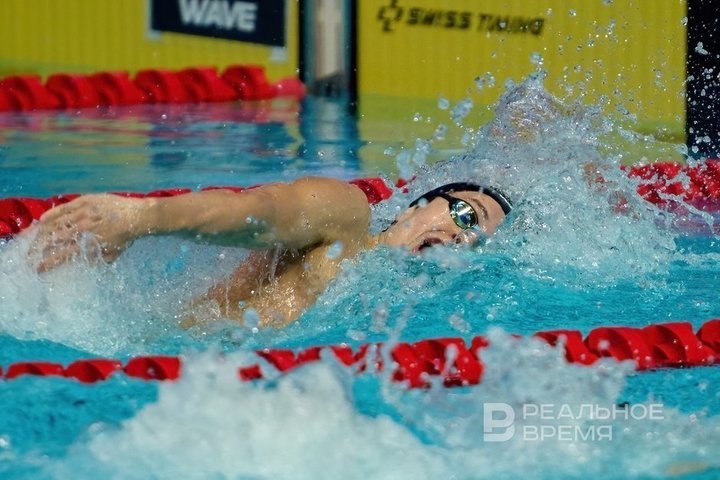
“When I was 13 years old, I didn't really follow Kazan FINA World Championships”
Swimming is perhaps the most monotonous of all endurance sports. By comparison, even rowers and runners can diversify their long— and medium-distance workouts. As a result, at a transitional age, they often either completely leave the sport, bored by the fact that there are only four styles in it, where the walls of the pool and one somersault between them. Those who have a craving for playing sports can go into water polo. How did you manage to keep yourself together?
I feel like a gamer by nature, I miss it. On the other hand, an individual sport predisposes you to rely only on yourself, without fear that your partner will screw up.
And from what moment did you become interested in swimming, not only as a swimmer, but also as a spectator? For example, did the Kazan national championship in 2015 stick in your memory?
No, the thing is, I've always rather enjoyed swimming, competing, and training myself than watching others. That's why I didn't really follow the Kazan Aquatics when I was 13 years old, and the Olympics in Rio. It wasn't until I joined the national team's closest reserve in 2017 that I began to learn the names of the star swimmers. As I remember now, I performed very successfully at the Russian Youth Championship, which was held in Saransk in May 2017, and I qualified for the international summer competitions. At that time, the very concept of participating in competitions in the summer was new to me, moreover, certain plans had already been drawn up, which had to be changed due to participation in the European Youth Olympic festival in the Hungarian city of Gyor.
I remember that at that time I only heard about Kliment Kolesnikov, who was already swimming for some incredible seconds as a young man. Back in school, I remember discussing how cool he was, after reading that an order had been issued awarding him the title of International Master of Sport. And when I found out that he had qualified for the national team and would participate in the championship in Hungary, I found him on social media and wrote that I would also be at the starts. Kliment is two years older than me, and he not only answered, but was also happy that we would be starting together in Budapest. I thought, wait, what's Budapest like when we go to Gyor? And then it turned out that Kolesnikov was already in the adult national team that would participate in the World Cup, and I was going to the European youth festival, which was not the same thing.
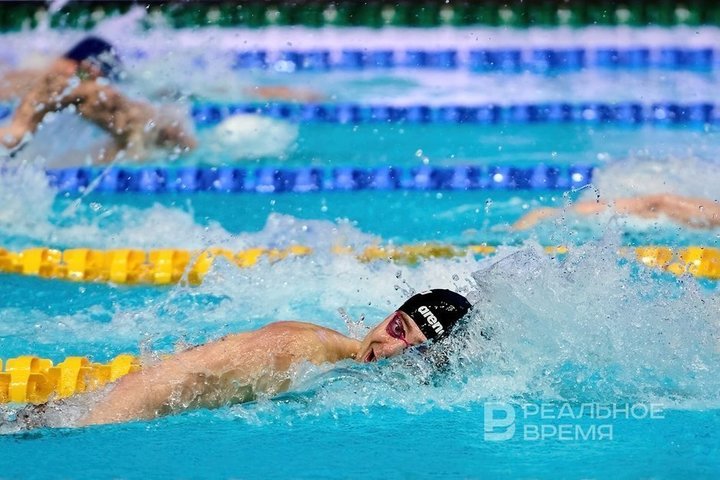
On the one hand, Giryov, Malyutin, and you made your debut there and became leaders. On the other hand, our Tatarstan stars Yegor Kuimov and Gleb Karasev performed successfully, but quickly retired from the sport.
When I joined that national team, I didn't know any of the guys you listed. I don't remember feeling like, wow, I'm at the junior World Championships, among the best juniors. Apart from the feeling of light excitement, youthful audacity, the desire to show myself, nothing else moved me. From the category: you have to, you have to. Moreover, Andrey Kapralov had a desire to win in his childhood group.
What's even funnier is that I didn't even know that we still have the Russian Adult Championship, where this selection for the World Adult Championships took place. After the fact, it became clear who was going where, it was a reason for jokes. However, after my participation in the youth festival, I also qualified for the junior World Championships in Indianapolis, USA.
Kazan swimmer Yana Martynova admitted that nothing is more difficult for her than the 200-meter butterfly, as it is a heavy style and the longest distance in it. Why did you choose butterfly in the first place, and maybe you can speak for your colleagues on the national team — why did the same Kolesnikov or Yevgeny Rylov initially concentrate on backstroke swimming, and only then, like you, began to take away bread from the representatives of freestyle?
We are again returning to the predisposition of a particular person to swimming and a narrower predisposition to a particular style. Butterfly is the choice of Andrey Kapralov, who saw my prospects in this type of swimming. As for the guys, I was wondering why they originally specialized in the backstroke, and only then did Kolesnikov begin to master the 50 and 100 metres freestyle, while Rylov swims the 200 metres.
2018 looks like a lonely year for you due to the lack of medals at international competitions.
Why, I had the Youth Olympic Games, where I won six gold medals. By the way, in relay races I often swam with Alexander Shcheyogolev, whose rivalry I remember from my childhood match meetings. In addition, I set my first Russian record by beating the record of Kazan resident Yegor Kuimov, who, in turn, broke the record of Yevgeny Korotyshkin, now vice-president of the Russian Aquatics Federation. I came to the start, after two consecutive defeats from the Hungarian Christoph Milak, and eventually beat him.
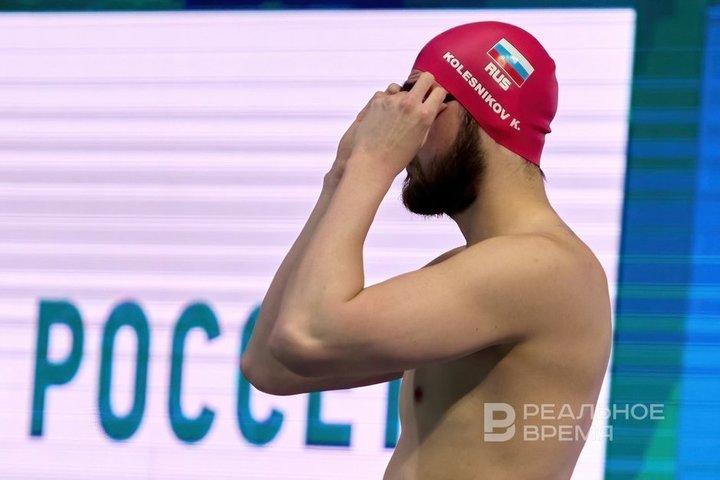
“Short-course swimming is such a real men's swimming”
In continuation of the question, I wanted to ask about short water starts, looking ahead and remembering 2021, when you were not at the European Championships in Kazan.
It's simple, I couldn't get short water literally before moving to America and changing the training process. In general, it seems to me that short-course swimming is such a real men's swimming, typical of some Ben Proud from England or Luca Dotto from Italy, who throws his 192 centimetres, almost entirely made up of muscles, into the water and sweeps everything in his path, thanks to turns and exits from the water.
Speaking of which, and this is now the main star in the world butterfly, is Milak about swimming or an analogue of Dotta and Proud?
No, Milak is just about swimming, technique, and so on. Going back to winning the Youth Olympics, I remember that I had to work on the second half of the 100-metre butterfly, and it was very difficult. I started off easy and fast, and in the second half I constantly wanted to bend my arms from the fatigue. That is, not just to swim with a classic butterfly, but to rake the water with a kind of windmill, almost like a dog. For 15 metres, I saw that Milak was not catching up with me, and it also gave me an adrenaline rush, and when I saw the result on the scoreboard, then... Even now, my heart feels warm. Back then, Kolesnikov and I were discussing this moment on the bus: “You broke the Russian record!”, “Yes, it was tough.”
Alexander Krasnykh described to me two different styles — about turns and about swimming.
I agree with him, because for me, swimming in a regular pool is more the art of lying on the water, feeling it, and short water is a constant explosion, turning, and powerful repulsion from the side. My body wasn't formed yet, and I didn't have enough spirit for a short swim. And it wasn't until I was 19, namely by the start of the 2021 World Championships in Abu Dhabi where I won six medals, two of which were gold, that I was ready to win in this discipline.
(To be continued)